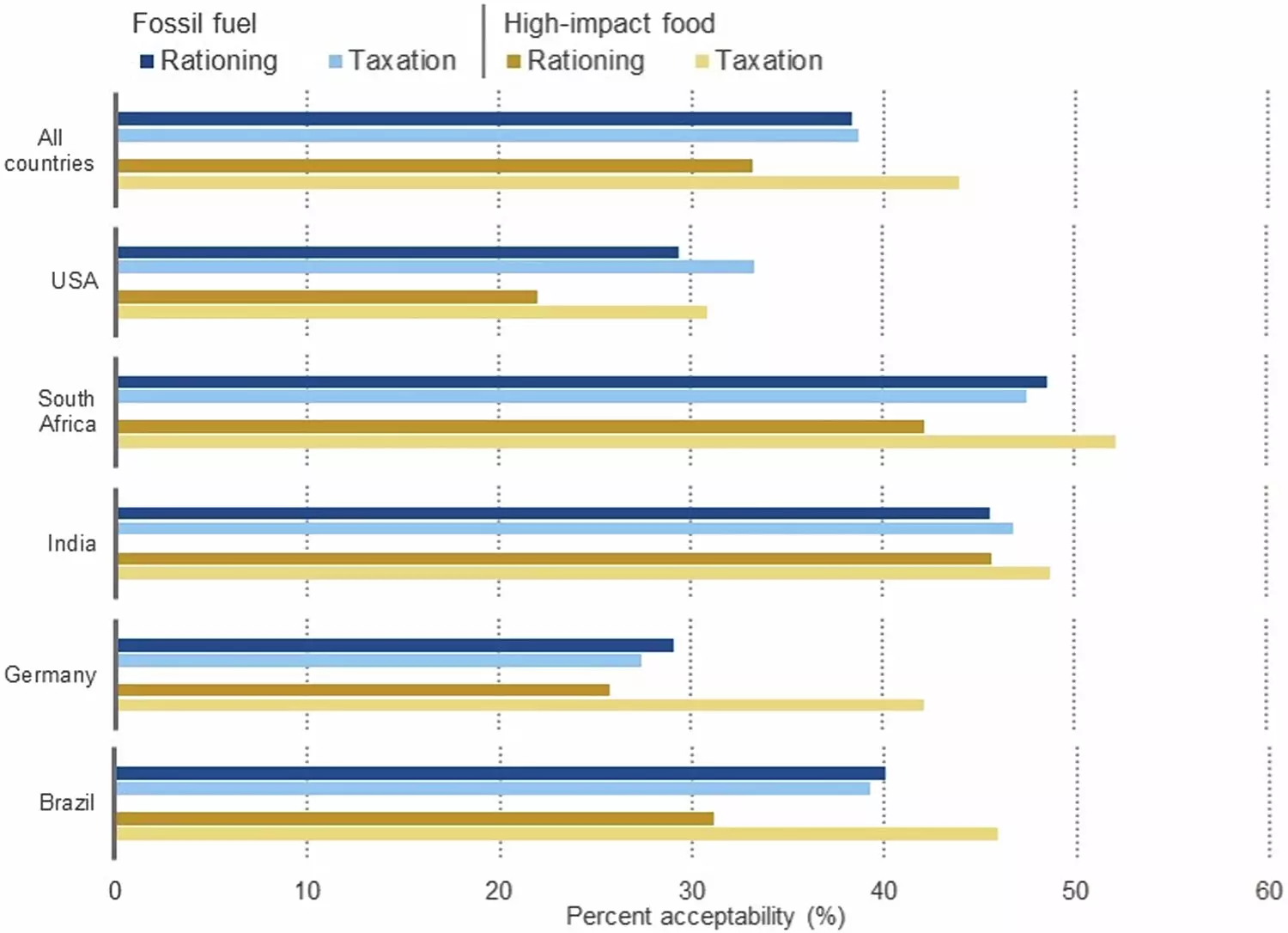As the effects of climate change become an undeniable reality, the necessity for effective policy solutions has never been more urgent. From wildfires to escalating natural disasters, the environmental crises we face call for innovative approaches that can bring about significant reductions in consumption and greenhouse gas emissions. Rationing, particularly of high-impact goods like meat and fuel, has emerged as a proposed strategy that may mitigate consumption and promote fairness among consumers. A recent study from Uppsala University brings this issue to the fore, revealing that nearly 40% of the public might accept rationing measures, indicating a shift in public perception about climate action.
Rationing is often perceived as draconian and invasive. However, researchers argue that in the context of escalating climate crises, such measures may be viewed differently. The study led by Oskar Lindgren at Uppsala University highlights that rationing, when perceived as fair and equitable, can garner significant public support. This study highlights an intriguing paradox: while the public may initially recoil at the thought of rationing, the harsh realities of climate change may create a willingness to embrace such measures if they are framed in a way that promotes fairness across socioeconomic strata.
Lindgren’s research indicates that policies perceived as fair tend to receive higher levels of public acceptance. This suggests that our collective understanding of justice and equity plays a crucial role in determining the effectiveness of policy measures aimed at climate mitigation. It is critical, then, for policymakers to design rationing programs that are transparent and equitable in their implementation.
Insights from Global Perspectives
The study’s findings, derived from nearly 9,000 individuals representing diverse countries—including Brazil, India, Germany, South Africa, and the United States—shed light on the varying acceptability of rationing versus taxation as climate policy instruments. Surprisingly, the research revealed that support for rationing is comparable to that for taxation, with 38% of respondents favoring fuel rationing in contrast to 39% supporting fuel taxes. This trend challenges conventional wisdom, suggesting that while consumption limitations might seem restrictive, they do not spark the backlash once anticipated.
One notable observation from the research is the geographic divergence in acceptability rates. For instance, respondents from India and South Africa appear significantly more receptive to rationing measures than those from Germany and the United States, who demonstrate a marked resistance, particularly towards meat rationing. This divergence indicates that cultural, societal, and economic contexts play a vital role in shaping public sentiment regarding environmental policies.
The study also identifies demographic factors that influence the likelihood of support for rationing—namely, age and education. Younger and more educated individuals show a greater propensity to favor rationing as a viable policy intervention. Moreover, those concerned about the climate crisis are considerably more likely to endorse such measures. This finding underlines the importance of educational initiatives that can enhance public understanding of climate issues, ultimately fostering a more supportive environment for progressive policy solutions.
The findings affirm that while traditional measures like carbon taxes have been extensively studied, alternative strategies such as rationing deserve equal attention. As water rationing becomes increasingly common in various regions, the public’s willingness to adapt suggests a growing readiness to limit consumption for climate benefits—particularly if they perceive collective sacrifice as a necessary component of the solution.
Consequently, additional research is warranted to explore attitudes toward rationing and the development of robust, effective policies. By comprehensively addressing public concerns and expectations, a well-structured rationing policy could indeed play a pivotal role in our global climate strategy, fostering sustainability while promoting a sense of shared responsibility.
In light of the urgent need for transformative climate action, the dialogue around rationing as a strategy merits serious consideration. By tapping into both the psychological and cultural factors that influence public opinion, researchers and policymakers can pave the way for a fair and effective response to the climate crisis. Rationing could become a historical pivot point, reshaping consumption patterns in ways that align with our collective goals for a sustainable future, provided it is managed with care and an emphasis on equity.


Leave a Reply